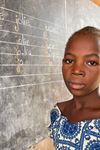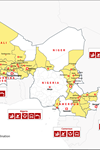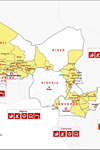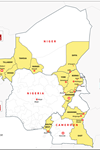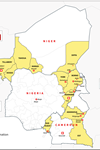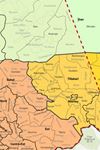
Nigeria
After more than a decade of active conflict, the crisis in North Eastern Nigeria remains one of the most severe in the world. Forced displacement, exacerbated by climate shocks and disease outbreaks, have left millions of people in need of humanitarian assistance and protection across the BAY (Borno, Adamawa and Yobe) States.
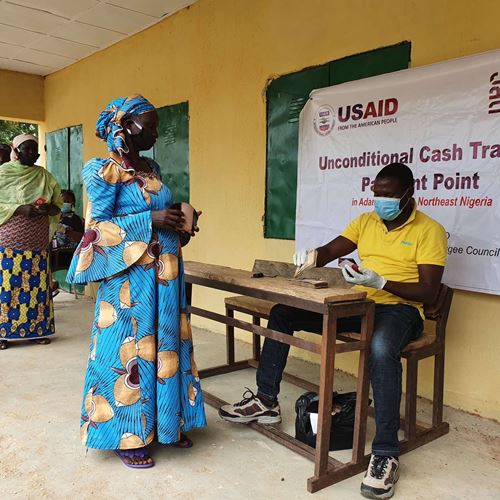
Displacement trends
Source: | DRC Foresight
Displacement Trends
Definitions
EDPs: Refugees under UNHCR’s mandate
IDPs: Internally displaced persons
Asylum seekers: People whose claims for refugee status have not yet been determined
Stateless: People not considered as nationals by any State
HST: People living in Host Communities
OIP: Others in need of International Protection
OOC: Others of Concern
Forecast
DRC forecasts are based on a machine learning tool that has been developed to predict forced displacement (IDPs, refugees and asylum seekers) at the national level 1-3 years into the future.
Why we are there
The lack of economic and livelihood opportunities, marked deterioration in food security, public health emergencies and limited access to essential basic services, have all negatively impacted the well-being and further undermined the resilience of IDPs, returnees, and host communities in Nigeria.
What we do
DRC has had an operational presence in Nigeria since 2015, and has been working in several Local Government Areas (LGAs) across the BAY states. DRC provides life-saving assistance and protection to vulnerable, conflict-affected populations including IDPs, returnees, and host communities in the sectors of armed violence reduction, livelihoods, nutrition and food security, protection, shelter and Non-Food Items (NFI) and Water, Sanitation and Hygiene (WASH).
The operational context in northeastern Nigeria remains challenging, as the ongoing conflict impedes conflict-affected communities’ access to the limited basic services that are available, and it also impedes DRC and other humanitarian actors from getting access to persons of concern.
Working in collaboration with

Contact

Yann
Faivre
Executive Director West & North Africa and Latin America
Paul
Byars
Country Director
